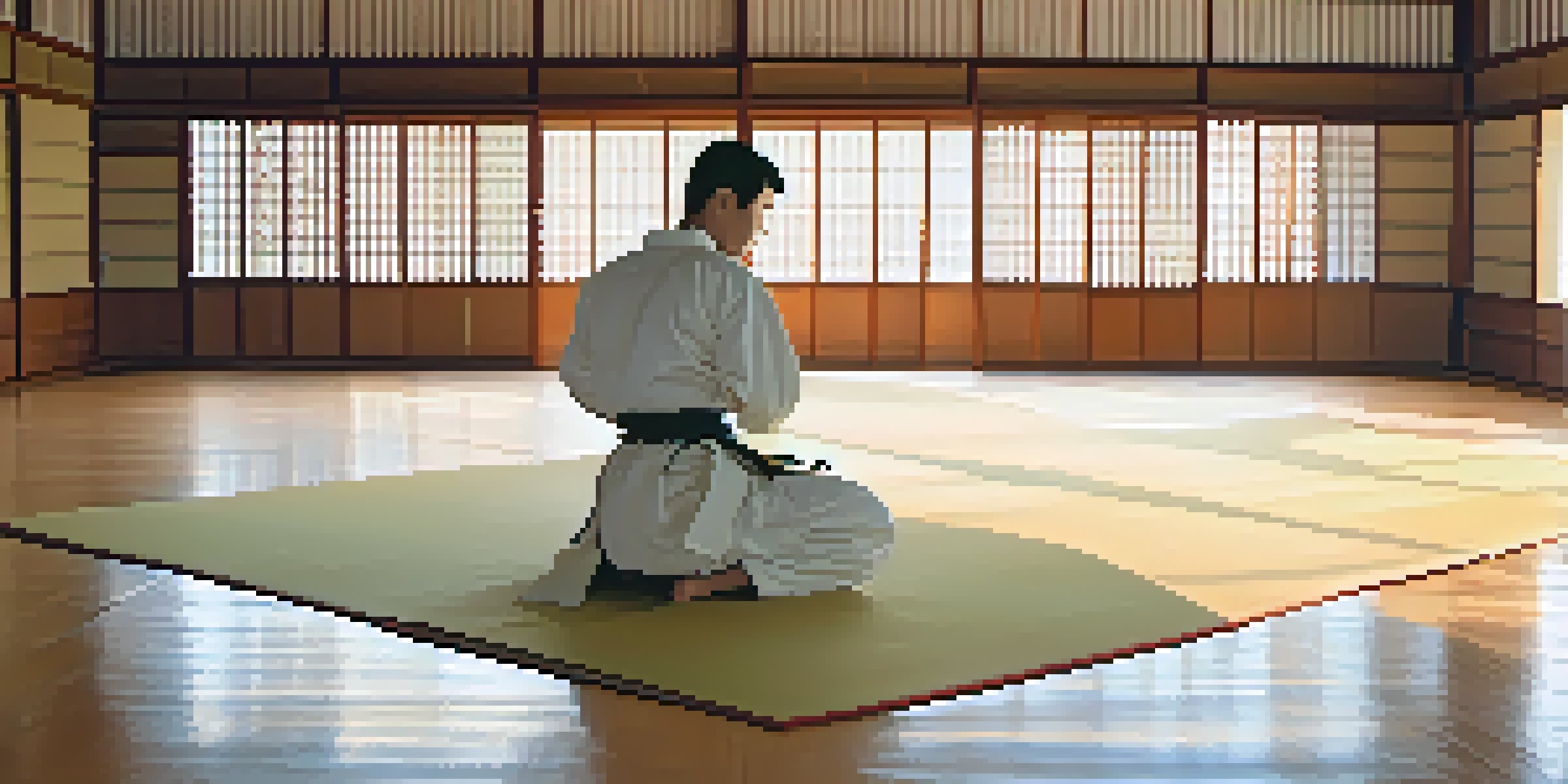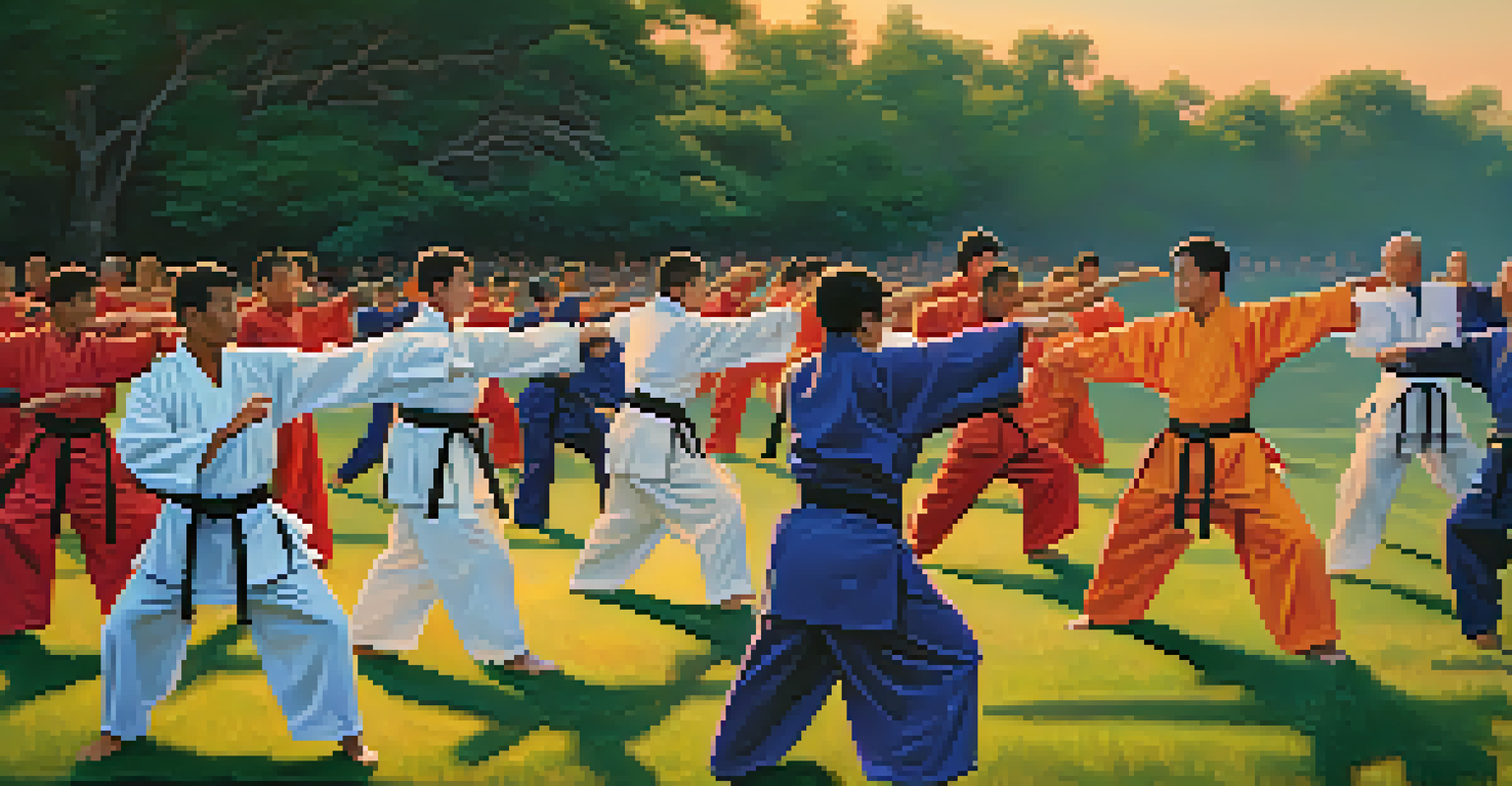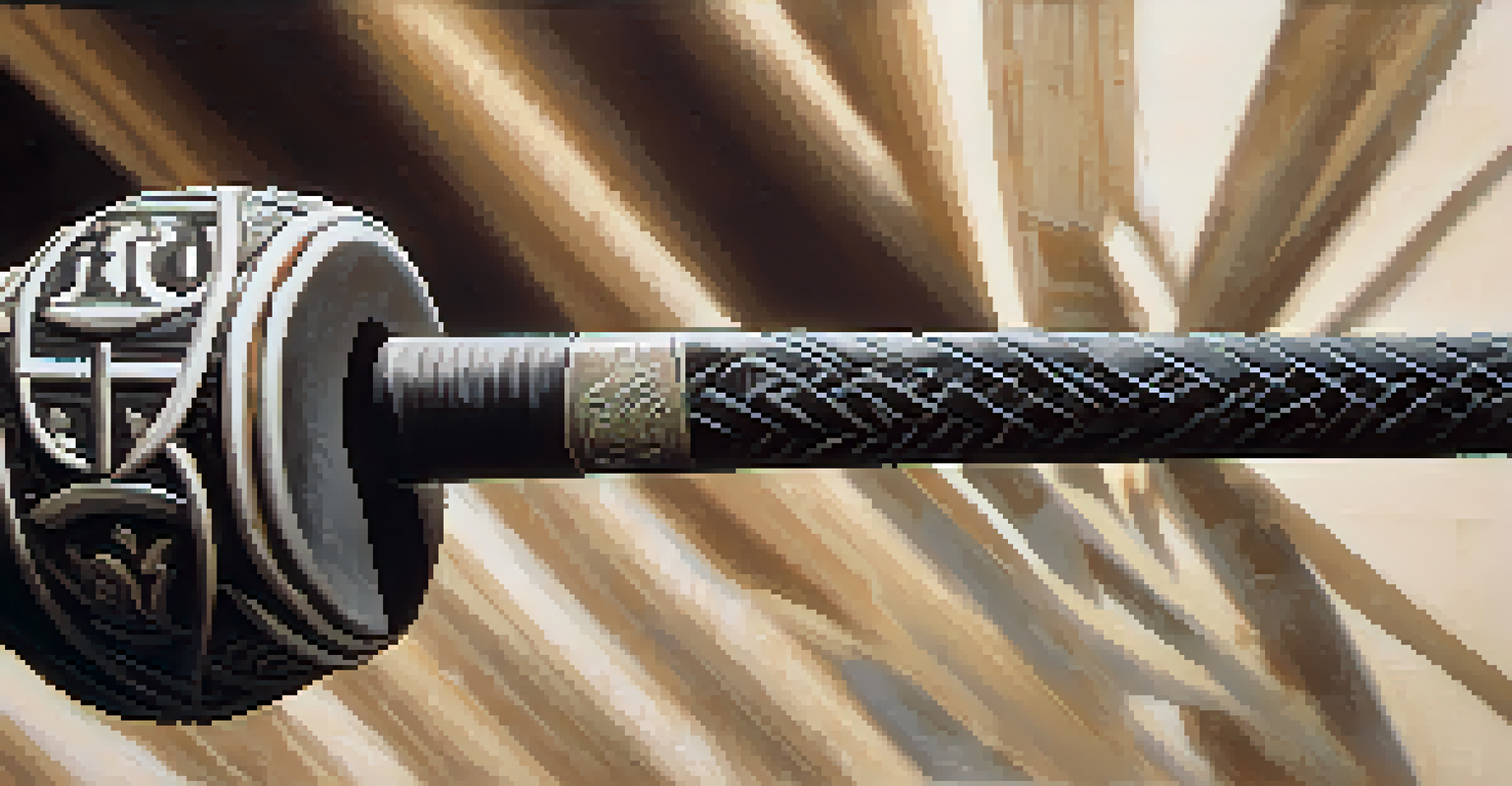How Martial Arts Cultivates Focus and Reduces Distractions

Understanding the Role of Focus in Martial Arts
Focus is a fundamental skill in martial arts, as it directly impacts performance. Practitioners learn to concentrate not just on their movements but also on their breathing and surroundings. This heightened awareness helps in anticipating opponents' actions and reacting accordingly. As a result, martial artists develop a strong ability to stay present, which is crucial both in training and competition.
The mind is everything. What you think you become.
The process of mastering techniques requires a high level of mental engagement. For example, when learning a new kata or form, students must break down each movement and understand its purpose. This intricate focus cultivates a mindset that values precision and intentionality, which can be transferred to everyday life. It’s about honing the ability to block out distractions and immerse oneself in the task at hand.
Moreover, the practice of martial arts often involves meditation and breathing exercises, which further reinforce the importance of focus. These practices teach individuals to center their thoughts and cultivate a calm mind. By integrating these techniques into their training, martial artists learn to maintain their focus even in high-pressure situations.
How Distraction Impacts Performance in Martial Arts
Distractions can significantly hinder performance in martial arts, just as they do in any other field. A moment of inattention can lead to improper technique or missed opportunities during sparring. For instance, thinking about external events instead of focusing on the opponent can result in a loss. Therefore, understanding the impact of distractions is vital for any martial artist looking to improve.

In the dojo, distractions can come in many forms, whether it’s noise from other students, personal worries, or even the pressure of competition. Learning to manage these distractions is part of the training process. Practitioners often engage in exercises that challenge their focus, helping them to filter out unnecessary stimuli and concentrate solely on their performance.
Focus Enhances Martial Arts Skills
Developing focus is crucial for martial artists as it improves their performance and helps them stay present during training and competition.
This process of overcoming distractions not only enhances martial arts skills but also builds resilience. When students learn to maintain their focus amid chaos, they become better equipped to handle life’s everyday distractions. This skill becomes invaluable, enabling them to perform better in both martial arts and other aspects of life.
Mindfulness: A Core Component of Martial Arts
Mindfulness is a key concept often associated with martial arts training. It refers to the practice of being fully present in the moment and aware of one’s thoughts and feelings without judgment. In martial arts, this means paying close attention to every movement, breath, and sensation during training. By developing mindfulness, practitioners can significantly enhance their focus.
Focus is the key to success, and the key to focus is simplicity.
For example, during a sparring session, a martial artist practicing mindfulness will notice not only their own movements but also those of their opponent. This awareness allows them to react more effectively and adapt their strategies on the fly. The ability to remain mindful also helps in reducing anxiety, as it encourages individuals to focus on the present instead of worrying about the future.
Incorporating mindfulness techniques into martial arts training can lead to profound benefits. Students often report feeling more centered and less distracted during their daily lives. This shift can improve overall performance and satisfaction, both in martial arts and beyond.
Breathing Techniques to Enhance Concentration
Breathing techniques play a significant role in martial arts training, offering a powerful tool for enhancing concentration. Controlled breathing helps to calm the mind and body, which is essential for effective focus. For instance, practitioners often use specific breathing patterns during forms or sparring to maintain a steady rhythm and clear mindset.
When faced with stress or distraction, returning to one's breath can be a grounding experience. It serves as a reminder to reconnect with the present moment. By mastering breathing techniques, martial artists can create a mental space where distractions fade away, allowing them to focus entirely on their practice.
Distractions Hinder Performance
Managing distractions is essential in martial arts, as even a moment of inattention can lead to poor technique or missed opportunities.
Incorporating these breathing exercises into daily life can have far-reaching effects. Individuals may find that they can manage stress more effectively and maintain their focus in challenging situations, whether in martial arts or everyday tasks. This skill reinforces the idea that martial arts training extends far beyond the dojo.
Setting Goals for Improved Focus and Achievement
Goal-setting is an essential practice in martial arts that directly correlates with enhanced focus. By setting clear, achievable goals, practitioners create a roadmap for their training. This structure fosters a sense of purpose, making it easier to concentrate on specific techniques or skills that need improvement.
For example, a martial artist might set a goal to master a particular kick or improve their sparring strategy. This specific focus helps to filter out distractions, as the student is directed toward achieving that goal. The more defined the goal, the more motivation there is to stay on track and push through obstacles.
Additionally, celebrating small milestones along the way reinforces focus and commitment. Recognizing progress can fuel motivation, leading to further dedication to training. As practitioners achieve their goals, they not only enhance their martial arts skills but also carry this focused mindset into other areas of their lives.
The Community Aspect of Martial Arts Training
The community found in martial arts training can significantly contribute to an individual's focus and reduction of distractions. Being part of a supportive group fosters a sense of accountability and camaraderie. When everyone is working toward common goals, it’s easier to stay motivated and focused during practice.
Practitioners often find themselves surrounded by like-minded individuals who share similar aspirations. This environment encourages participants to push each other, share insights, and provide constructive feedback. In essence, the community serves as a reminder of the importance of dedication and concentration.
Mindfulness Translates to Daily Life
The focus and mindfulness learned in martial arts can significantly improve how individuals handle stress and distractions in their everyday lives.
Moreover, engaging in group classes can help to minimize personal distractions. When surrounded by peers, martial artists often feel more inclined to focus on their training rather than external issues. This collective energy can create an atmosphere conducive to growth and learning, reinforcing the focus necessary to excel.
Translating Focus from Martial Arts to Daily Life
One of the most profound benefits of martial arts training is the ability to translate focus into daily life. The skills acquired on the mat often extend beyond martial arts, helping individuals manage stress and distractions in their everyday routines. As practitioners learn to maintain focus during training, they also discover how to apply these techniques in various situations.
For instance, the mindfulness and breathing techniques learned in martial arts can be employed during stressful work situations or personal challenges. By practicing these methods, individuals can enhance their ability to remain calm and collected, enabling them to tackle problems more effectively. This adaptability can lead to improved performance in both personal and professional spheres.

Ultimately, the lessons learned from martial arts training create a lasting impact. The focus cultivated in the dojo can empower individuals to navigate life’s distractions with ease, promoting a more balanced and fulfilling lifestyle. It's about harnessing that energy and discipline to thrive in all aspects of life, making martial arts a valuable tool for personal development.